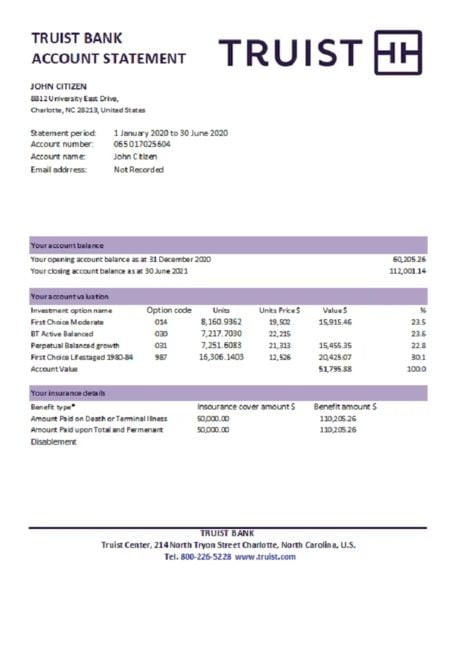When you’re on the hunt for proof of income for apartment, you might be surprised by the amount of paperwork involved. One crucial aspect of the application process is providing proof of income documents for apartment rentals. Landlords and property managers use these documents to ensure that potential tenants can afford the rent and will be reliable in making payments. Let’s dive into the world of income verification and explore the various documents you might need to secure your dream apartment.
Common proof of income for apartment Applications
Pay Stubs: The Go-To Option
Pay stubs are often the first thing landlords ask for when verifying income. These documents provide a clear picture of your regular earnings and are typically easy to obtain from your employer. Most landlords prefer to see at least two months’ worth of pay stubs to get a solid understanding of your income stability.
Pro tip: If you receive direct deposits, you can often access your pay stubs online through your company’s payroll system.
W-2 Forms and Tax Returns
For a more comprehensive view of your annual income, landlords might request W-2 forms or tax returns. These documents offer insights into your earnings over the past year or even several years. Tax returns can be particularly useful if you have multiple income sources or are self-employed.
Bank Statements: A Window into Your Finances
Bank statements serve as another reliable proof of income for apartment applications. They show not only your income deposits but also your spending habits and savings. Landlords typically ask for statements from the past two to three months.
- Look for statements that clearly show regular income deposits
- Be prepared to explain any large or unusual transactions
- Consider providing statements from both checking and savings accounts
Employment Verification Letters
Some landlords may request an employment verification letter from your current employer. This letter typically confirms your position, length of employment, and salary. It adds an extra layer of credibility to your income claims.
Self-Employed? Here’s What You Need
If you’re self-employed or a freelancer, proving your income can be a bit more challenging, but it’s not impossible. Here are some documents that can help:
1099 Forms and Profit & Loss Statements
For independent contractors, 1099 forms serve as proof of income from clients. Alongside these, a profit and loss statement can give landlords a clearer picture of your business’s financial health.
Client Contracts and Invoices
Ongoing client contracts and a history of paid invoices can demonstrate a steady income stream, even if it’s not from a traditional employer.
Business Bank Statements
Separate business bank statements can show the flow of income into your business accounts, providing landlords with confidence in your earning potential.
Alternative Proof of Income Documents for apartment rent
Sometimes, traditional income documents don’t tell the whole story. Here are some alternative forms of proof that landlords might accept:
Investment Income Statements
If you have income from investments, providing statements from these accounts can supplement your overall income picture.
Social Security or Pension Statements
For retirees or those receiving government benefits, official statements of these payments can serve as valid proof of income.
Alimony or Child Support Documentation
Court-ordered payments like alimony or child support can be considered as part of your income if you have proper documentation.
Tips for Presenting Your Proof of Income Documents
When submitting your proof of income documents for apartment applications, keep these tips in mind:
- Organize your documents neatly and clearly label them
- Redact sensitive information like social security numbers or account numbers
- Be prepared to explain any gaps in employment or fluctuations in income
- If possible, provide multiple forms of income proof to strengthen your application
What if Your Income Doesn’t Meet the Requirements?
If you find that your income falls short of the landlord’s requirements, don’t lose hope. There are still options you can explore:
Cosigners and Guarantors
A cosigner with a higher income or better credit score can help you qualify for an apartment by essentially vouching for your ability to pay rent.
Offering a Larger Security Deposit
Some landlords might be willing to accept a larger security deposit in lieu of higher income, as it provides them with additional financial security.
Demonstrating Significant Savings
If you have substantial savings, showing bank statements that reflect this can sometimes offset lower monthly income in the eyes of a landlord.
Protecting Your Personal Information
When providing proof of income documents for apartment applications, it’s crucial to protect your personal information:
- Only provide documents to reputable landlords or property management companies
- Use secure methods to transmit digital copies of your documents
- Ask about the landlord’s document retention policy and when your information will be destroyed
Conclusion: Be Prepared and Confident
Gathering proof of income documents for apartment applications might seem daunting, but it’s a standard part of the rental process. By understanding what documents you need and presenting them clearly and professionally, you’ll be well-prepared to secure your new home. Remember, landlords simply want to ensure that their tenants can afford the rent and will be reliable. With the right documentation in hand, you can approach your apartment search with confidence, knowing you’re ready to prove your financial stability and make a great impression on potential landlords.




